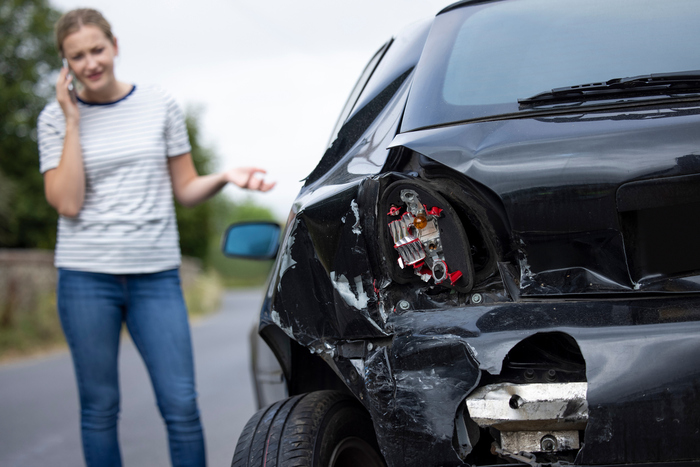
It’s crucial for all drivers to understand Indiana’s vehicle insurance requirements—ideally before an accident occurs. Knowing the required minimums, who pays for crash costs, and how to deal with uninsured motorists allows drivers to protect themselves ahead of time. Our Indianapolis car accident attorneys explain these requirements and how policy limits can affect an injury case.
Indiana Minimum Car Insurance Requirements
Indiana law requires all drivers to have a minimum amount of liability insurance to pay for damages they may cause to another person or their property in the event of an accident. The key components of this coverage include:
- Bodily injury liability coverage. This part of the policy pays for injuries you cause to another person in an accident. Indiana requires a minimum of $25,000 bodily injury coverage per person and $50,000 per accident.
- Property damage liability coverage. Indiana car insurance laws mandate a minimum of $25,000 to cover the cost of repairs to another person’s property if you are at fault in an accident.
- Uninsured/underinsured motorist coverage. Indiana law also requires insurers to offer most drivers uninsured and underinsured motorists (UM and UIM) coverage in their liability policies. This covers the cost of injuries and damages caused by a driver who either has no insurance or insufficient insurance to cover the damage they caused. This is crucial because it protects you in case of an accident with a driver who cannot afford to pay for your medical bills or car repairs.
Motorcycle Insurance Requirements in Indiana
Indiana requires motorcycle riders to carry the same minimum liability insurance limits as drivers, including UM/UIM insurance. Motorcyclists can also be fined up to $500 if they are riding without a valid motorcycle endorsement.
Indiana Commercial Truck Insurance Requirements
Commercial vehicles, such as vans and trucks used for business, are subject to both federal and state statutes when operating in Indiana. Due to the potential severity of large truck accidents, these vehicles have higher state-required liability coverage limits.
- Liability insurance. Indiana truck insurance requirements for bodily injury and property damage liability vary depending on the truck’s weight and cargo. For trucks weighing between 10,001 and 26,000 pounds, the minimum required liability insurance is $300,000. The required liability insurance for trucks carrying hazardous materials can be significantly higher.
- Interstate insurance. Indiana requires commercial insurance on vehicles hauling freight for hire across state lines. This includes a $300,000 minimum for cargo vans and sprinters and a $750,000 minimum coverage for commercial trucks hauling general freight.
- Proof of insurance. Trucking companies must send proof of minimum commercial auto liability insurance to the Federal Motor Carrier Safety Administration (FMCSA) and the Indiana Department of Transportation (INDOT).
Impact of Insurance Minimums on Injury Claims
The minimum auto insurance coverage in Indiana is designed to offer a baseline level of financial protection. Still, it often falls short when it comes to covering extensive injury claims.
A crash causing significant injury, long-term disability, and inability to earn a living could easily surpass these limits. Indiana car insurance requirements also don’t include coverage for non-economic damages like emotional distress, which can be crucial in severe injury claims.
The state-required liability insurance also only covers injuries to people in other vehicles. In other words, it’s the amount you will pay if you cause a crash. If you’re in an accident and the at-fault driver has only the minimum coverage, you and your passengers may be under-compensated for your injuries. You might consider adding medical payments (MedPay) coverage to your policy.
All drivers should consider adding additional coverage options, such as comprehensive and collision coverage. These are not required by law, but they can help with the cost of repairing or replacing a vehicle after an accident, theft, or weather-related damage.
Contact an Indiana Car Accident Attorney
After a car accident, it’s crucial to have someone you trust by your side. If you or a loved one has been injured in a crash, reach out to Wilson Kehoe Winingham Injury Lawyers to schedule a consultation. Our team serves clients across Indianapolis and throughout Indiana, and we’re ready to pursue the justice and full compensation you deserve.
